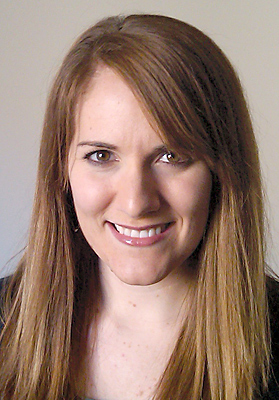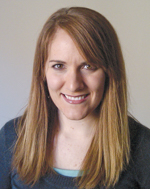
Last month I had the opportunity to visit the Mustard Seed Community in Nicaragua.
Mustard Seed Communities were founded in 1978 by Msgr. Gregory Ramkissoon in Jamaica to care for the very poor and vulnerable.
In Nicaragua, they operate two homes for abandoned children with disabilities.
I found this trip theoretically exciting: what’s not to like about an adventure with friends and a break from routine?
This wasn’t my first mission trip. I love Central America and didn’t give the cold showers or bugs a second thought.
It wasn’t until our driver, Fernando, dropped us off at Mustard Seed Community and said, “I hope you brought an extra heart. You’re going to need it”, that I realized maybe I wasn’t fully prepared for what I was about to experience.
While poverty is awful, it is finite — fixable. Through generosity, hunger can be fed, ignorance can be taught and the homeless can be sheltered.
However, when I spent an hour holding the hand of a boy named Juan Miguel, 13 years old with beautiful brown eyes, who was unable to walk, talk or move, I found the permanence of his suffering brutal. I could not write a check or teach a class to fix him.
As part of his visit to Madrid for World Youth Day, Pope Benedict XVI visited the San Josè Foundation for Disabled Youth. Addressing them, he asked, “When suffering appears on the horizon of a young life, we are shaken; perhaps we ask ourselves: ‘Can life still be something grand, even when suffering unexpectedly enters it?’”
In this corner of Managua, Nicaragua, tucked under mosquito netting because he couldn’t even brush the bugs off his body, I wondered, could the life of Juan Miguel be considered “grand”?
When Msgr. Gregory spoke at St. Francis a few weeks earlier, he shared stories of Mustard Seed Community and encouraged us to ask: “Who is Jesus Christ? Who am I? Who is my neighbor?” Sitting with Juan Miguel, this silent witness of suffering, I thought about what Msgr. Gregory and Pope Benedict had said and about how God became man, suffered and died for us.
How often do we skip over the word, “suffer,” not wanting to dwell on this unpleasant aspect of our redemption?
Yet, Pope Benedict explained in Spain, “Jesus and, in his footsteps, his sorrowful mother and the saints, are witnesses who show us how to experience the tragedy of suffering for our own good and for the salvation of the world.” Juan Miguel, and all those who suffer, are powerful witnesses.
When we encounter suffering that we cannot fix, we are reminded of the reality of original sin that could only be remedied through the suffering of Christ.
While it is very important to work to end suffering, we should also recognize the sacredness of all human life, especially those the world might look on as unimportant.
Sitting with Juan Miguel and the children at Mustard Seed, I came nowhere close to understanding the mind of God.
I did, however, gain one more glimpse into the life — and love — of Christ.
Alison Griswold is the youth director at St. Francis by the Sea Church on Hilton Head Island. She writes “Team Catholic” for The Miscellany.

